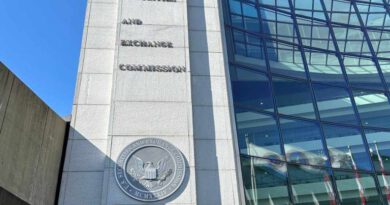Google Cloud to digitize El Salvador’s governance, healthcare and education


Google Cloud announced a new partnership with the government of El Salvador on Aug. 29 to establish an office and provide Google Distributed Cloud (GDC) services in the country.
The partnership aims to digitize the country, update government services and improve the healthcare and education systems. The GDC will also help bring infrastructure closer to where data is generated for El Salvador.
Nayib Bukele, the country’s president, said he believes El Salvador is quickly becoming a “hub for innovation.”
“El Salvador is moving forward. We believe technology and foreign investment are key for development.”
He also took to social media and posted about the partnership with a smirking smiley face emoji.
Google plans to establish operations in El Salvador
Official press release from @Google:https://t.co/Fm1i3YizNr
— Nayib Bukele (@nayibbukele) August 29, 2023
The partnership will span seven years, pending full legislative approval, and will help the government digitize projects and processes, such as invoicing, permitting and more. According to the announcement, Google Cloud’s entrance into El Salvador marks the first Latin American government to utilize cloud technology.
Thomas Kurian, CEO of Google Cloud, said he believes cloud computing can “truly transform” Latin America.
“Access to cloud computing has dramatically expanded across industries and regions throughout the world,“ he said, adding, “Enabling both small companies and the public sector to utilize the very same applications and services as more mature markets.”
Cointelegraph has reached out to Google Cloud for additional comments on its recent expansion.
Related: Iris Energy buys 248 Nvidia GPUs worth $10M for generative AI and Bitcoin mining
The additional GDC infrastructure will also help support El Salvador’s active stance on Bitcoin (BTC) adoption and integration into society. It allows for Bitcoin full nodes with Ordinal Protocol support.
Additionally, on Aug. 8, El Salvador granted the cryptocurrency exchange Binance a license to offer crypto services to users in the country. Bitcoin has been legal tender there since 2021.
Recently, the Bitcoin Beach initiative took to the classroom and taught over 25,000 students about Bitcoin and helped them earn a “Bitcoin diploma” via the country’s education system.
The country has already seen immediate returns on the program with the example of one teenager who earned the diploma and then returned to his former school to teach educators about the digital asset.
Magazine: Recursive inscriptions: Bitcoin ‘supercomputer’ and BTC DeFi coming soon




